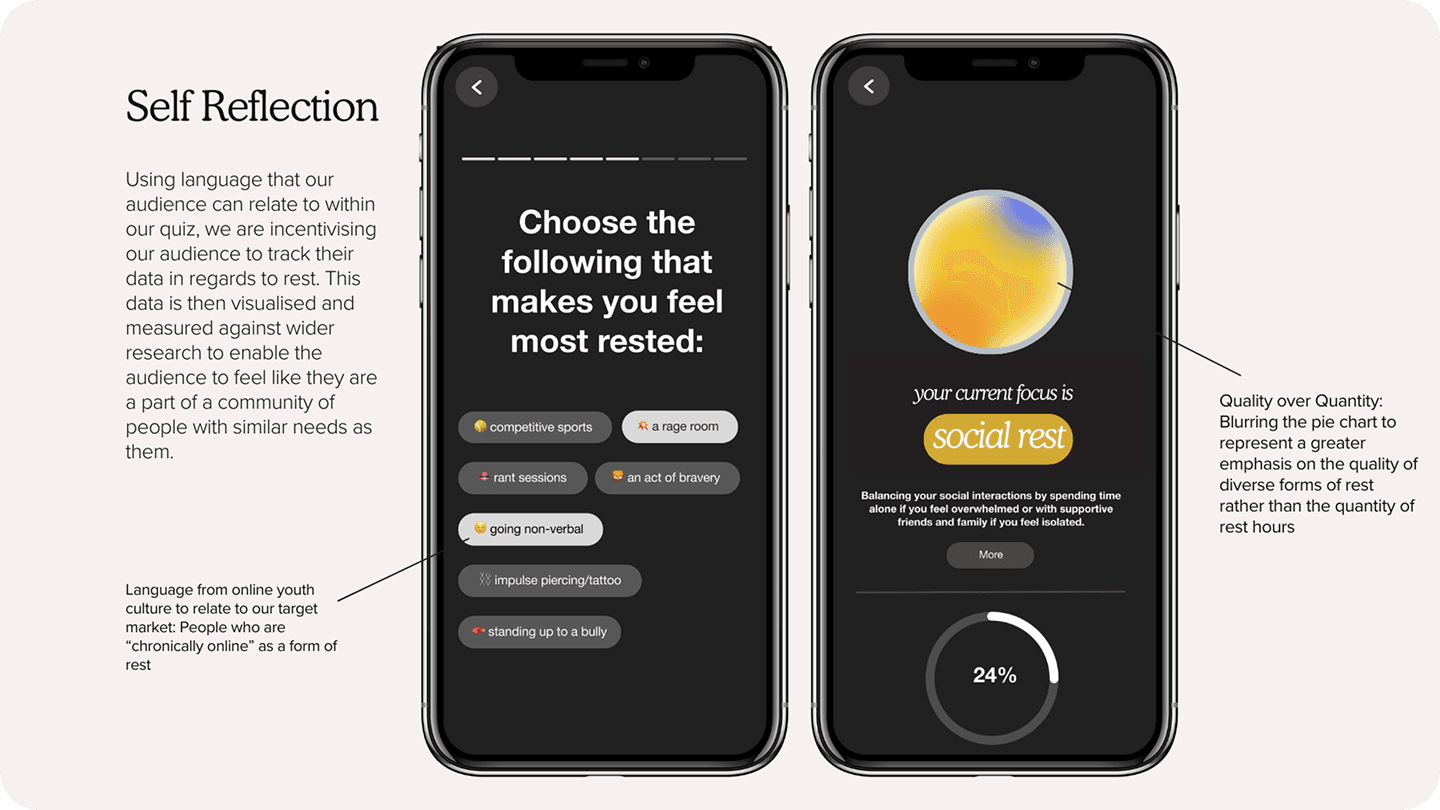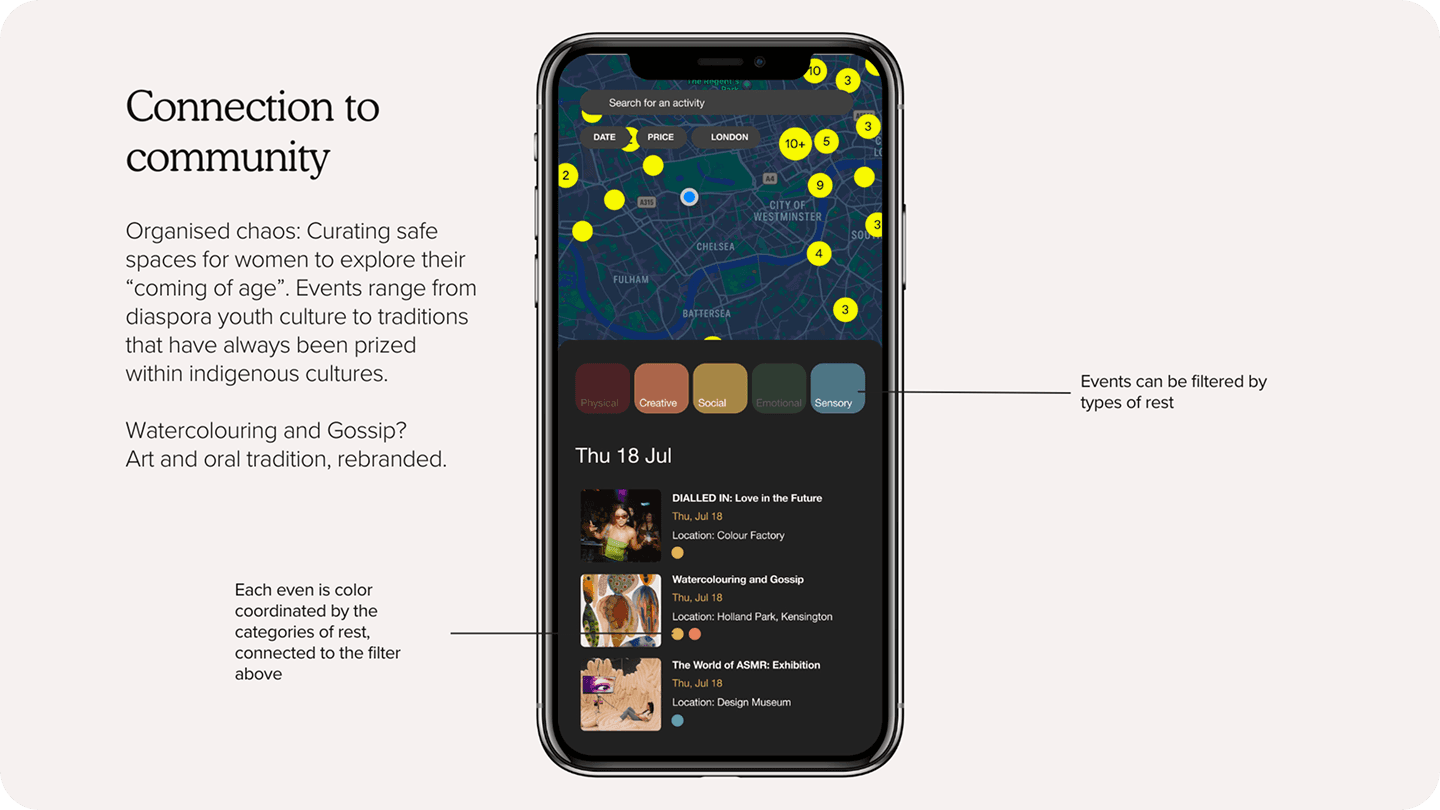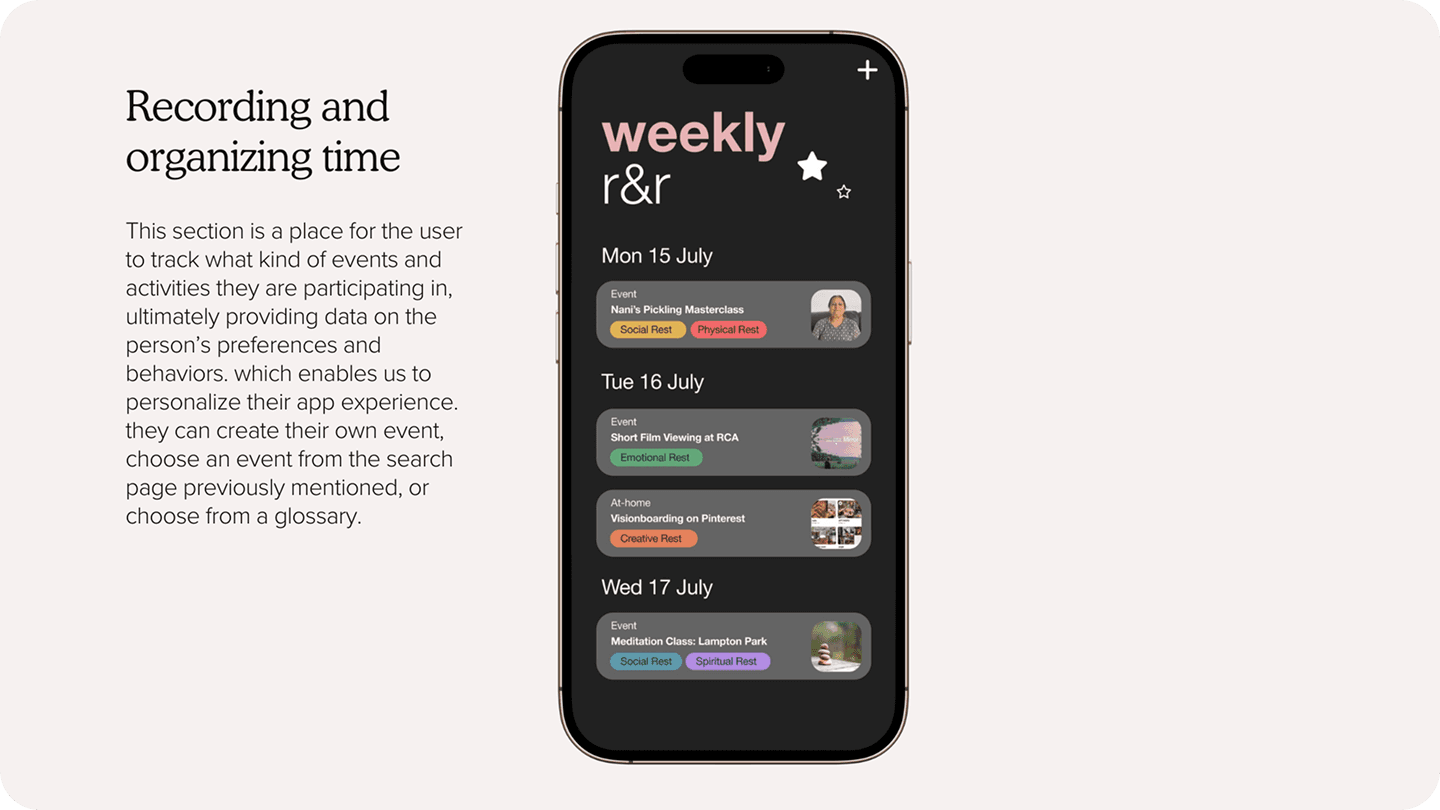Bungalow: A Space to Rest
How might we inspire young South Asian people to reconsider their negative perception of rest in their daily lives?
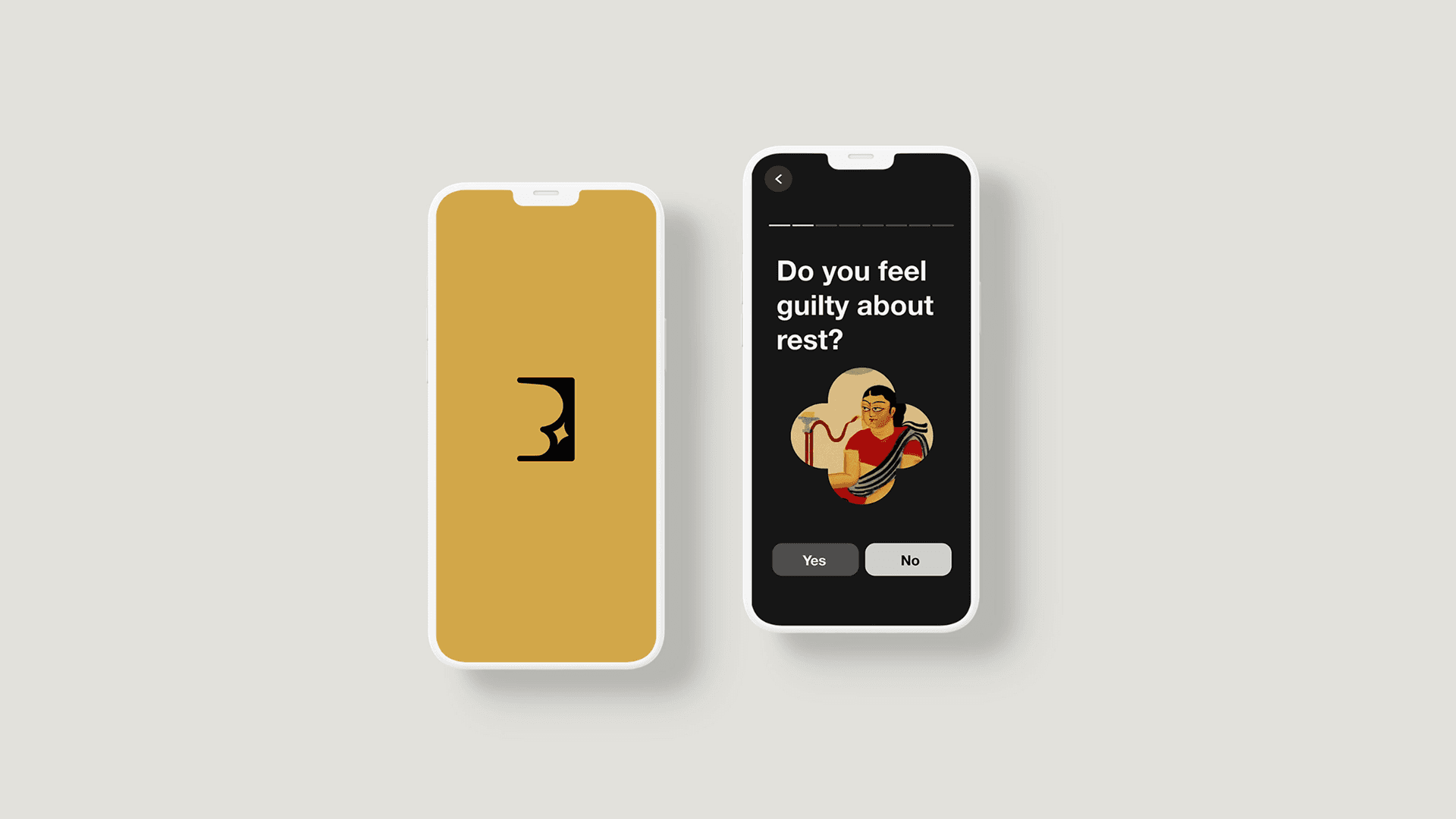
Project Brief
Bungalow is a service that curates activities and safe spaces for body rest that platform the unique experiences that come with being South Asian. Bridging research and culture, my research partner and I wanted to create an ecosystem that supports our audience’s need for rest. This project served as my final research project for my M.A. in Service Design at the Royal College of Art this past year.
Objectives
Project Impact
Present a rich and detailed scenario of your chosen
project with measurement and validation of
impact
Redefine Systems
Articulate a narrative for transformational change
across the systems and people involved
Growth
Show your development as a service designer and
be ready to work in organisations and scenarios to affect change
Where We started
Throughout our course time, we were able to identify that Service Design has the potential to reimagine and challenge systemic structures. By examining user experiences and mapping interactions, Service Design can identify biases, limitations, and inequalities embedded within systems. This sparked our initial brainstorming session, creating a range of theoretical and practical questions that would shape the project’s design.
Research Methods & Takeaways
We began with a focus on female empowerment, particularly on how, despite holding positions of influence, women often experience burnout from balancing multiple life roles simultaneously. Traditionally, the standard work schedule has not evolved to accommodate the biological and social realities women face, resulting in challenges to achieving a balanced work-life experience. We initially aimed to address these disparities by exploring work schedules that align with the female hormonal cycle, wanting to promote a more inclusive and equitable workplace.
We used the following methods to aid our research:
Interviews
User personas
Books, articles, films, etc.
Self Ethnography
Prototype Testing
Click here to view our initial collaborative research findings
What We Learned
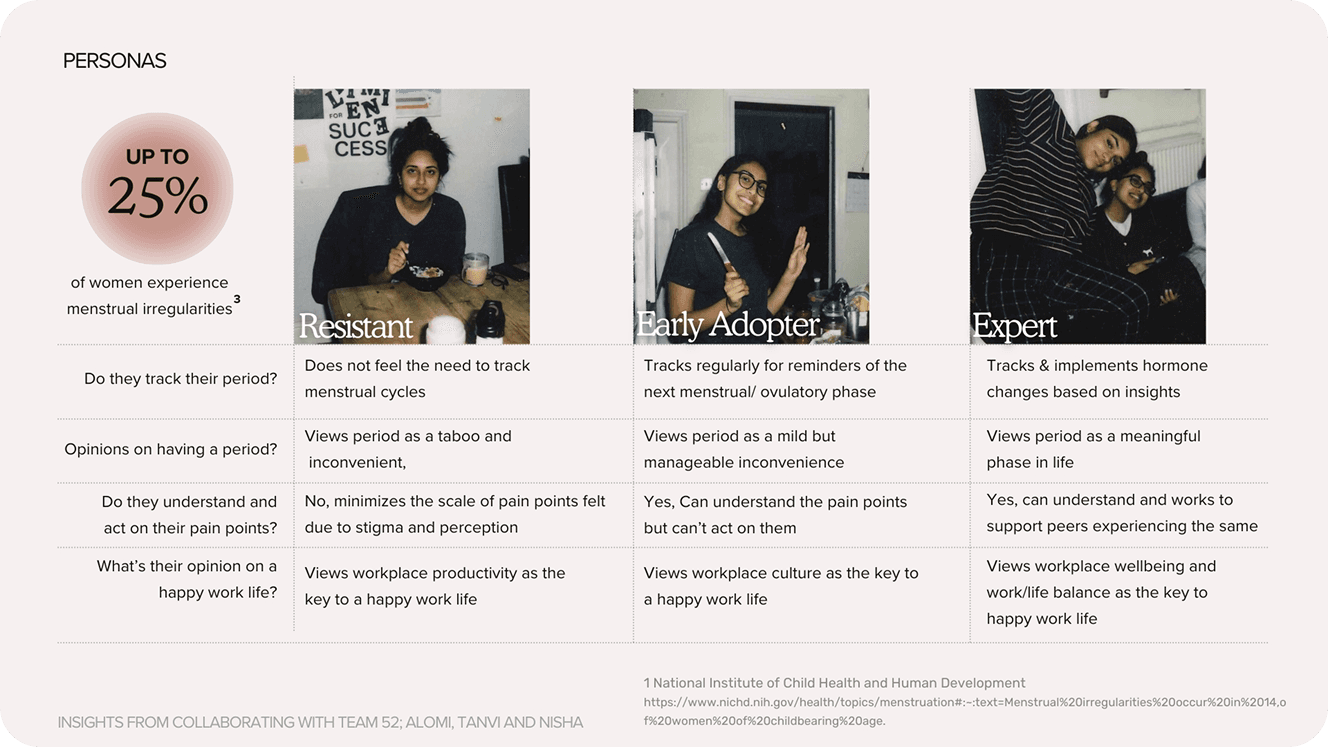
Ideation
Our research revealed that mental health was at the core of our participants’ challenges, though factors like workplace culture, home life, and external biases also influenced their experiences. We wanted our project outcome to answer the question: How might we inspire young South Asian people to reconsider their negative perception of rest in their daily lives?
We then imagined what shape our approach could take:
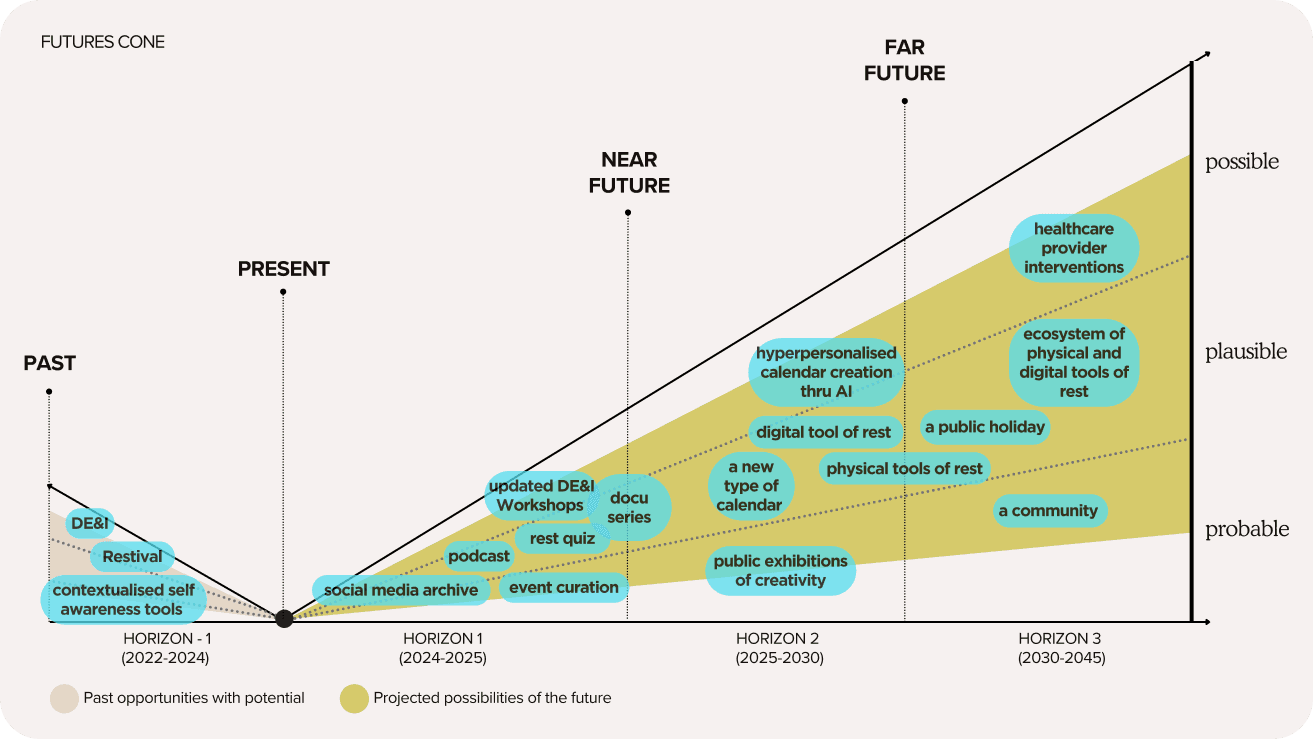
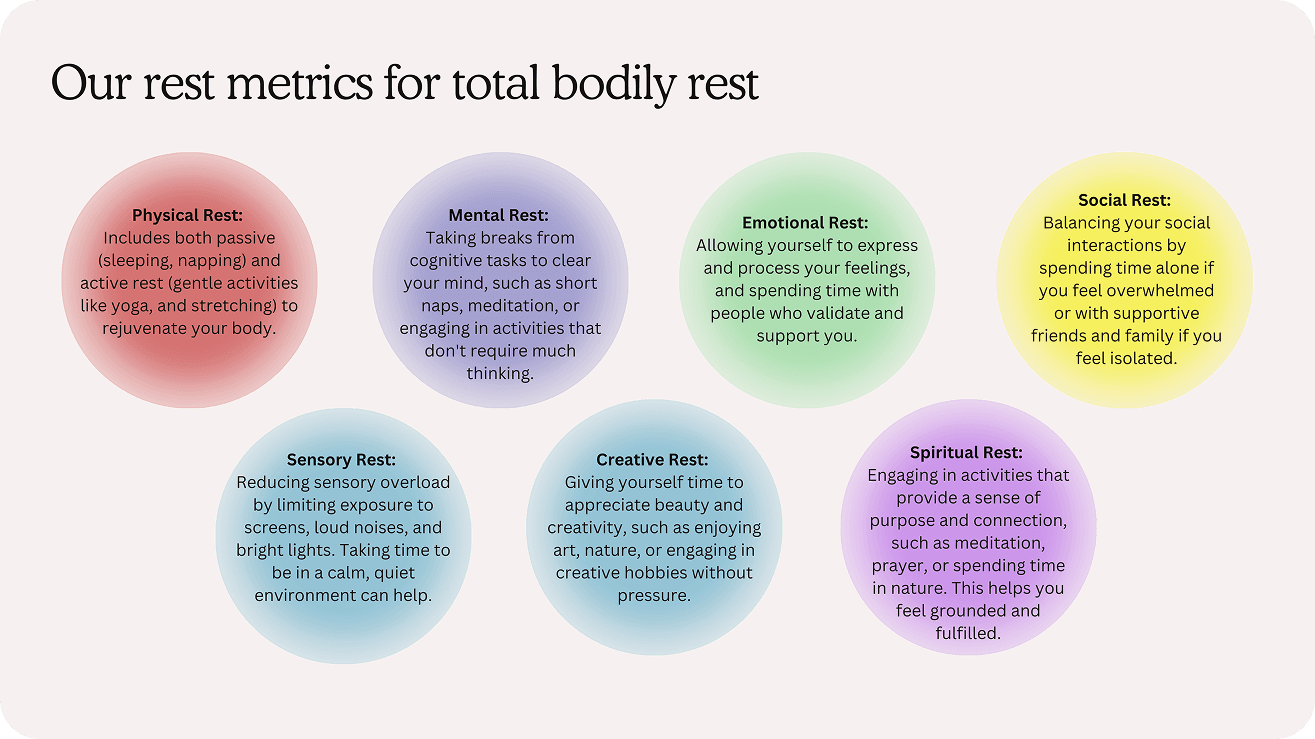
In preparation for our public event, held just weeks before the final deadline, our cohort had the opportunity to present our research progress to the public, allowing us to develop our projects based on their feedback.
For our prototype, we developed "The Rest Test," a quiz that identifies what activities make people feel most rested. Based on their responses, the test categorizes users into different types of "resters" according to their dominant answers. These results would guide us in designing a tool to support people’s daily routines and provide insights into individual rest habits.
We received an overwhelming amount of support on our concept and the pressures South Asians, amongst other ethnicities, feel to be in fight-or-flight mode at all times. Some of the guests wanted to keep the prototype for the backside to use as a glossary or to show their loved ones at home.
Bungalow is a wellness collective dedicated to curating bodily rest from a South Asian point of view. Our aim is to create a community that platforms all the beautiful experiences that come with culture and connect it to the unique conveniences that this digital age provides.
We came up with a mobile app as our present solution, as an all-in on tool to encompass our vision.
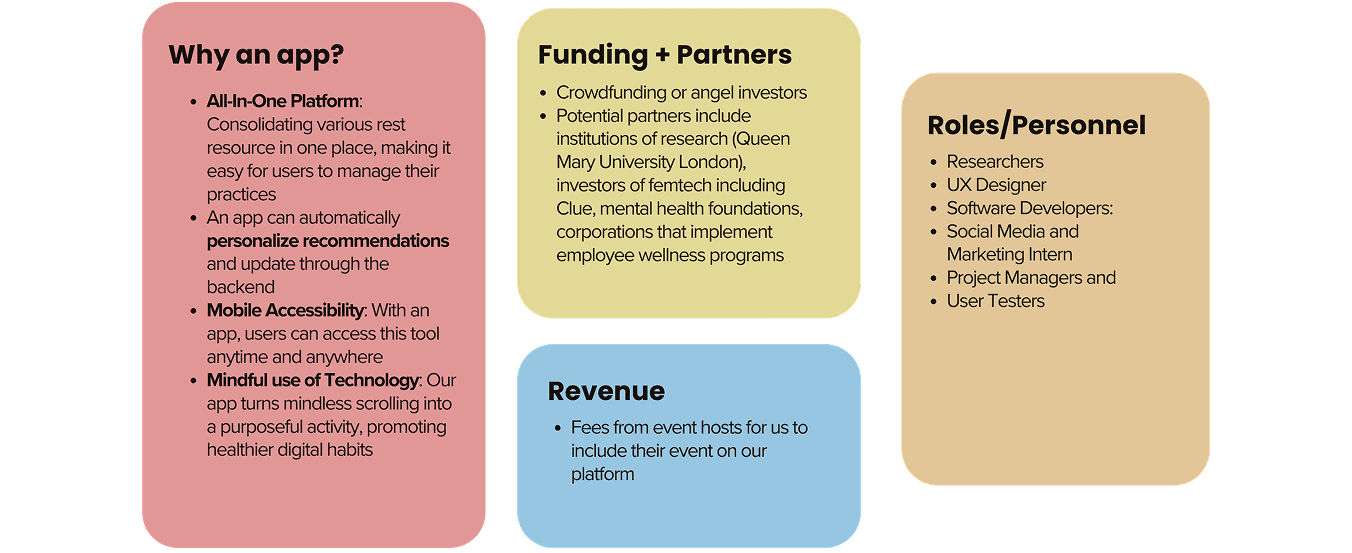
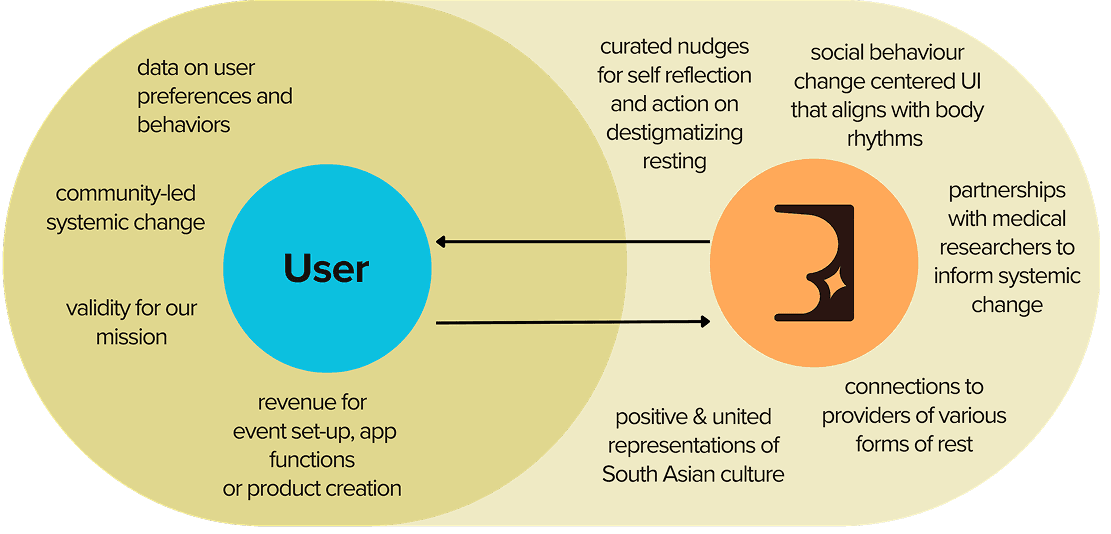
The slides below illustrate the app’s navigation, purpose, and key features that support our service design approach.
